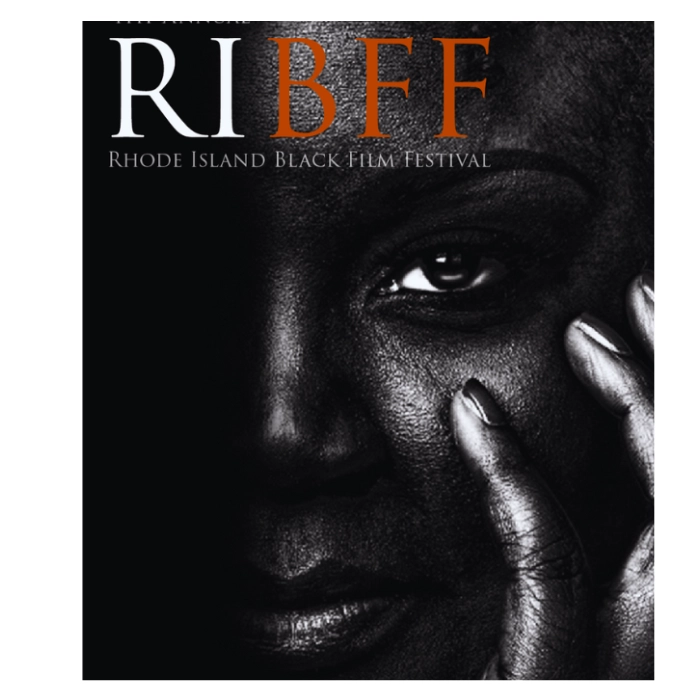
If you’re tired of the same old cookie-cutter award shows filled with red carpet paparazzi, mindless interview banter, tacky glamor, and celebrity smiles that look as though they were created by a Hollywood plastic surgeon, there is hope. Right here in Providence, there is an alternative.
On April 4 through April 7, Rhode Islanders have the opportunity to see a bevy of amazing films created by some of the country’s best Black filmmakers. As informative and timely as these films are, they are all free of charge. When was the last time you went to the movies for free? The free admission is made possible by the generosity of several corporations and ongoing grants from the state and Rhode Island Foundation.
The Rhode Island Black Film Festival (RIBFF), now in its seventh year, is the brainchild of a group of cutting-edge media pros that realize the African American community is overlooked by the mainstream film industry.
Consider the gap that exists between mainstream award shows, including worldwide movie festivals and independent film festivals. Award shows, including the Academy Awards and the Golden Globes, and iconic international film festivals generally stick to script and middle of the road themes, however, the RIBFF takes another, more progressive angle toward filmmaking.RIBFF officials realize it’s not just about minority representation, but compelling documentary themes.
Black directors represent just 1% percent of competition films at major festivals, according to the Screen Daily, an industry publication. Consider this statistic: there were 14 major film festivals in 2021 worldwide with 221 films submitted, but, only four films, or 1.81%, came from Black filmmakers.
RIBFF founder Ann-Allison Clanton is determined to ensure Black creative voices have movie representation.
Clanton, who was raised in Providence, was heavily influenced by the film industry at an early age. She remembers watching the filming of Jaws as a youngster while vacationing in Oak Bluffs, Martha’s Vineyard.
Clanton points out that the success of the RIBFF is due to a dedicated team that has seen the festival grow during its seven year run.
Clanton notes that this year’s RIBFF — which takes place at Brown University’s CIC building, Providence Public Library’s Donald Farish auditorium, and Johnson and Wales’ Xavier Academic Complex — features an invigorating array of documentaries focusing on a variety of relevant cultural issues for the African American community and other marginalized communities across the country.
One of this year’s gems at the BIFF is Last Place Champ, which focuses on the challenges faced by Gazmine Mason, known as G.G., a Cranston native, who is the first African American person to win a gold medal for U.S. bowling. The director of this emotional documentary, Najah Owens, also a bowler, first met G.G. at college and decided Mason’s story needed to be shared in a documentary. In the film, Mason recounts her ups and downs winning gold and trying to help other African American girls enter competitive bowling. To learn more about GG Mason, visit GazmineMason.com.
Last Place Champ will be shown Thursday, April 4 at Johnson and Wales’ PVD campus at 261 Pine St..
Another blockbuster documentary coming to this year’s RIBFF is Hazing, which originally aired on the Public Broadcasting Television network. This award winning film goes inside the ritual of hazing, a sometimes violent practice, for initiation into college fraternities, sororities, as well as college sports teams. Despite being outlawed in all but four states, the documentary’s director, Byron Hurt, said, “There are far too many men and women that have been affected by hazing.” He added hazing exists because many African Americans suffer from internalized abuse and humiliation that is passed down through generations; it’s systemic. Rhode Island state law forbids hazing.
As Red Sox fans prepare for opening day at Fenway, the RIBFF sheds light on the roots of America’s favorite pastime with a screening of Price of Admission. This compelling documentary about Rhode Island Black baseball goes inside the African American community from the early 1900s, through the Great Depression and the hard scrabble 1930s. Long before there was the historic career of slugger Jackie Robinson, African American baseball was thriving in the Ocean State, especially in Providence, including in the long gone Messer and Melrose Parks, where the Providence Greys originally played baseball.
Another highlight of the 2024 RIBFF is Dr. Ira Reid: Haverford College’s Unsung Scholar Activist. This documentary tells the inspirational saga of Dr. Reid, a scholar, and Civil Rights pioneer. Reid was a colleague of W.E. DuBois, iconic Civil Rights legend and intellectual. Following the screening, noted director Rel Dowdell will speak about the making of the film.
Rhode Island Black Film Festival makes accessible vital African American history and ensures it will not be forgotten in the Ocean State thanks to brilliant filmmakers and the RIBFF’s hardworking staff.
The Rhode Island Black Film Festival takes place April 4 – April 7. For more information about RIBFF, including screening times and locations, visit ribff.org.